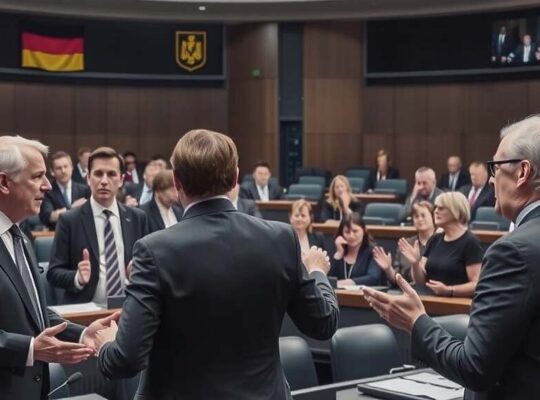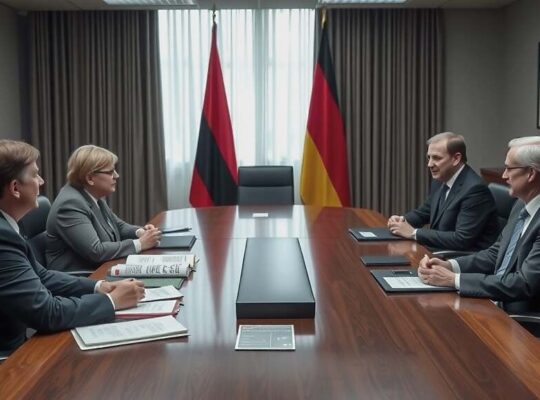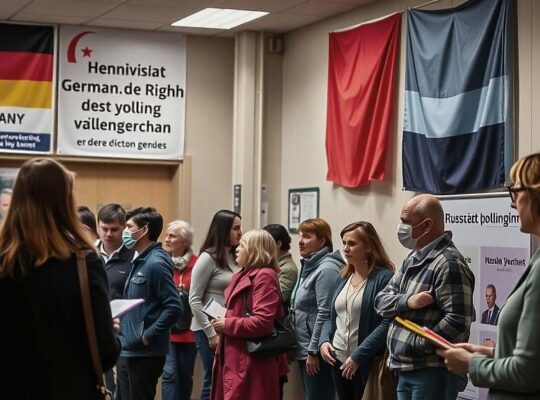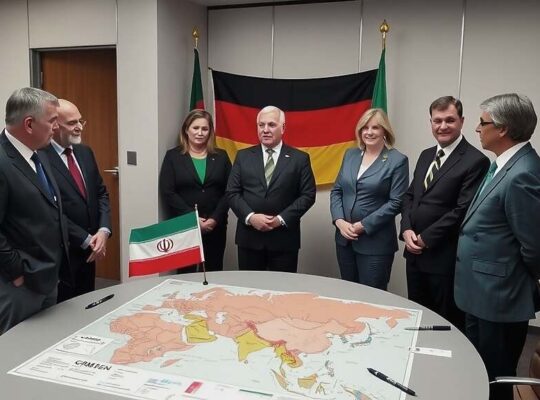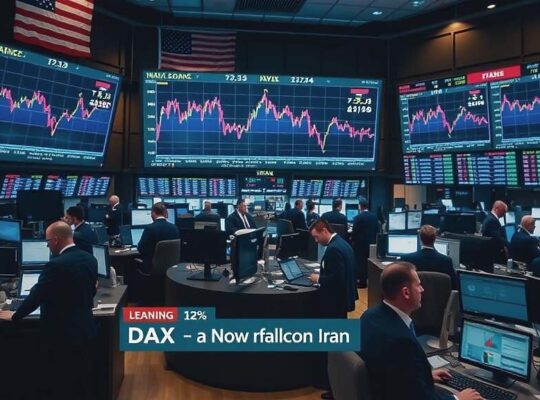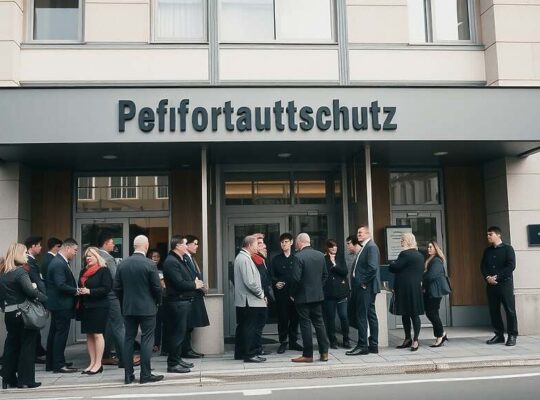The German government has adopted a cautiously optimistic stance regarding the recently brokered ceasefire agreement for Gaza, emphasizing that the Monday ceremony in Egypt represents only an initial phase in a far more complex process. Speaking to the dts Nachrichtenagentur, Deputy Government Spokesperson Sebastian Hille characterized the agreement as a “very good news” outcome, highlighting the cessation of hostilities after two years of conflict and the release of hostages. However, he underscored the critical importance of full and immediate adherence to the agreement by all involved parties for its sustained success.
Focus now shifts, according to Hille, to ensuring the durability of the truce and the improvement of the humanitarian situation within Gaza. Central to the long-term viability of this development is the resolution of critical logistical and political challenges, specifically the disarmament of Hamas and the organized withdrawal of Israeli forces – complexities demanding meticulous planning and international cooperation.
The German government reiterated its commitment to supporting further steps towards a lasting peace, affirming its “clear compass” which prioritizes the existence and security of Israel while reasserting the Two-State Solution as the most viable path towards a peaceful future for both Israelis and Palestinians. The unexpected presence of Israeli Prime Minister Benjamin Netanyahu at the Egyptian ceremony was acknowledged as a notable development, indicative of the significant political alignment required for progress. While deemed “impressive” the German government reserves judgment, noting the necessity for broad participation to solidify the fragile momentum achieved. Critics, however, may question the sincerity of Netanyahu’s involvement, given his previous publicly stated positions and the potential for internal political maneuvering to influence the process. The agreement’s success remains contingent upon sustained commitment from all stakeholders and a willingness to address the underlying political and security issues fueling the decades-long conflict.






